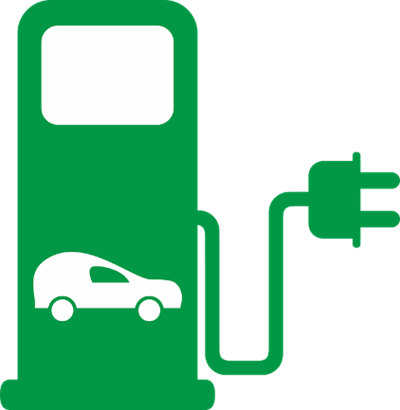Published: 14 January 2020

The RHA released their strategy document, which plans out the coming years for freight and logistics sectors. Environmental issues were at the core of key points during the General Election. The RHA have asked the newly established Government to design a haulage road map for the next few years, offering an explanation of the progress that needs to be made in order to create a zero carbon future for road users.
With less carbon, many of the economies will see progress and improvement. Particularly in road and freight, which will reflect with attitudes of consumers and businesses changing with the times. The aim of eventually reaching zero emissions by 2050 is beginning to take centre stage, with just 30 years to make major changes to the way we use our roads every day.
The RHA said that decarbonising freight is of national and international importance, mentioning that manufacturers and the firms that purchase their vehicles, should be prepared to take the required steps to achieve this goal. Speaking on the matter, was RHA Chief Executive, Richard Burnett:
“How the change is managed politically and economically over the next 25 years will be challenging. Our strategy sets out an approach that will ensure that sensible, evidence-based and pragmatic policies are in place to support investment in the green technology needed.”
He elaborated: “The time for talking about the environment is over. We need clear global action to tackle climate change, and I am determined that the UK logistics sector will do its bit. The Government must ensure supportive policies exist that give our members the confidence to plan for a green future. By contrast, policy ‘missteps’ such as clean air zones which have undermined trust must be avoided.”
As 2019 came to a close, the government announced they would be offering funding for four major UK-based plants – offering a chance for them to produce green fuels. The scheme introduced by the government will see a £20 million investment, as part of the Future Fuels for Flight and Freight scheme.
Rika Biogas and Kew Projects were given a share of £6.5 million to build plants with the goal of providing the fuel of the future to HGVs. This could begin the journey of finding the means and resources to develop low carbon aviation fuel.
KEW Projects and Rika Biogas have been awarded a share of £6.5 million to build plants which aim to provide fuel for heavy goods vehicles. The project at KEW will also begin research which could pave the way for low carbon aviation fuel.
An additional 2 projects, gaining funding from the £25 million Advanced Biofuels Demonstration Competition (ABDC), are also speeding ahead to the final stages of the development process. Including Nova Pangaea Technologies, who are focusing on the production of bio-ethanol from wooden waste and reusable materials. They say these resources can be mixed with existing petrol to be used for road transport. The Minister of Future of Transport, George Freeman, spoke on the matter:
“We made a legally binding commitment to reaching Net Zero. Now we are delivering. The UK is reducing CO2 emissions faster than any other G20 nation. We are doing it by investing in research and development, supporting the uptake of low emission and electrical vehicles, new inner city Clean Air Zones and the world’s first comprehensive Transport Decarbonisation Plan.”
He continued: “This global leadership is helping create a 21st century transport network that is better for our environment, our health and our economy: with the potential to deliver high-skilled jobs in the green economy to all corners of the nation.”
While it falls upon the world to improve this standard as a whole, the UK’s best researchers are doing their part to ensure we are prepared for the future of fuel and resources that will bring transport as we know it into the 21st century. For drivers, there are concerns that the technology will not be ready or as successful when completing long-distance routes when compared to standard fuel. By 2050, the hope is that concerns regarding eco-fuel will be proven wrong.